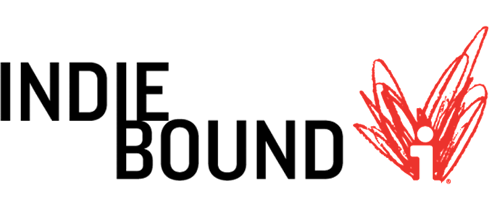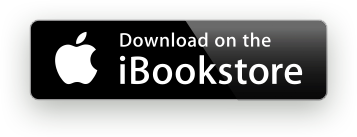USING ELIZABETH’S BOOKS
IN BOOK CLUBS, READING GROUPS & WORKSHOPS
You can find Book Club/Reading Group questions pertaining to BROKEN OPEN and MARROW in the back of the paperback editions of those books.
In the toolbox section of this website you can find exercises and meditations to use in group settings.
Below, you’ll find a guide for discussing CASSANDRA SPEAKS in your book club or reading group, and some interactive ways of bringing some of the concepts alive in a workshop setting.
CASSANDRA SPEAKS BOOK CLUB QUESTIONS
Elizabeth writes that for most of human history, the storytellers and scribes have been men. And that if women had been equally listened to, believed, and respected, our cultural stories about women and men, power and war, sex and love would be different. Do you agree? How would an equal blend of male and female voices throughout history have changed our culture, our values, and our family and work lives?
Let’s go back to our culture’s first story: Adam and Eve. Talk about the messages in the story, as it has been told through the ages. What story do you think Eve would have told about her life in the Garden of Eden, her desire for wisdom, her reasons for picking the apple, and her journey after leaving the garden? What lessons would humanity have learned from her perspective?
Of all the myths, origin tales, and stories that Elizabeth revisits in Cassandra Speaks, why do you think she chose the story of Cassandra as the inspiration for the book’s title? Would you have chosen that story or a different one as the title of this book?
Discuss the Spell of Galatea…this idea that women are still under an ancient spell of what our bodies are supposed to look like, and why, and for whom. Are you under the spell? How does that show up in your daily life? How might you break free?
Elizabeth sites many examples in literature and myth that associate rape and pillage, violence and brute force with the “hero’s journey.” What qualities do you value in a hero?
Elizabeth tells a story about walking through Central Park and viewing several statues. She quotes José Ortega y Gassett, who said, “Tell me to what you pay attention, and I will tell you who you are.” Think of statues in the parks or museums or buildings around you. What and whom do they honor? Who do you think we should be paying more attention to? What roles besides the traditional ones (firemen, policemen, soldiers) do you think also qualify as “first responders”? If you were curating three new statues for a park, who or what would you like to see celebrated, remembered, valued?
There are many rather shocking quotes about women from early Jewish and Christian leaders throughout the book. The general theme seems to be that women are sinful and therefore they are not to be trusted, nor do their lives matter as much as men’s. Like this one, from Saint Tertullian: “Do you not know that you are Eve? God’s sentence hangs still over all your sex and His punishment weighs down upon you. You are the devil’s gateway; you are she who first violated the forbidden tree and broke the law of God…Because of the death you merited, even the Son of God had to die.” And this one from Ecclesiasticus, an early biblical book of morals: “A gift from the Lord is a silent wife, and nothing is so precious as her self-discipline. Charm upon charm is a wife with a sense of shame, and nothing is more valuable than her bound-up mouth.” And this one, from the Mishnah, a sacred Jewish compendium of laws: “She is not to be believed as a witness.” Do you think these words still linger in our culture today?
What do you think Elizabeth means when she says the point isn’t only about women getting power, but it’s also about doing power differently? Do you think women are primed to do power differently? How? Why? Are there people—women or men—you know who are “doing power differently”? Have you tried (and failed or succeeded) in your own work and family life to model a different way of leading, communicating, empowering?
Throughout history women have been shamed for talking too much, feeling too much, over-sharing, gossiping, or chit-chatting, as men were hailed as the “strong and silent” types. But talking is meaningful to women; sharing one’s feelings is good for all people; emotionally intelligent communication knits families and societies together. Praising people builds better relationships and expressing difficult truths can prevent misunderstandings and conflict. Do you withhold your voice when it would be better to speak up?
Elizabeth writes that “it takes courage for a woman to find, unlock, and give clear voice to her healthy anger. It takes courage because there’s a long line of scorned and punished women behind us, put there in the stories to remind us about what happens to the angry woman. In the old stories they were called hags and hysterics, witches and madwomen. Different words are used today: nasty feminist, angry black woman, shrill politician.” What does healthy anger mean to you?
In a chapter called “In Praise of Fathers,” Elizabeth writes, "I actually believe that full-hearted fatherhood might save the world." Do you notice changes in the way men are fathering and participating in life at home and work that are changing our culture?
It’s still a badge of honor for a girl to be called a tomboy, but if a boy is called a sissy, it’s a mark of shame. Why do you think we say to girls “you can be anything a boy can be,” but we rarely say to boys, “you can be anything a girl can be”?
Do you identify more as an activist or an “innervist”? How might you balance these two pulls within yourself?
Research shows that a large percentage of women suffer from the “imposter syndrome”—at work, as mothers, as artists, in general. How does your imposter syndrome show up at home and work? What helps you overcome feelings of not being good enough, not belonging, not deserving of the role, the job, the salary, the seat at the table? How can women support each other in our quest for self-confidence, voice, and advancement?
There are a lot of very important issues vying for our attention right now: climate change, pandemics, racial and economic justice, political upheavals around the world—how do the struggles and contributions of women fit in? Elizabeth quotes the historian Gerda Lerner: “We now know that man is not the measure of that which is human, but men and women are. This insight will transform consciousness as decisively as Copernicus’ discovery that the earth is not the center of the universe.” How might the insight of the worthiness of women impact the issues we face as a species? How might women transform our world?
Elizabeth writes: When I dream of a better world, I dream of men fearlessly reclaiming words and traits that have been coded feminine: feelings, empathy, communication. I dream of women reclaiming traits that have been coded masculine: ambition, confidence, authority. But what I dream of most is women and men mixing it up, blending it all together, tempering power with wisdom, giving muscle and prestige to love and nurture. What do you dream when you dream of a better world?
DEEPER DIVE WORKSHOP EXERCISES
Pick one of these stories and imagine yourself as its first teller, cooking up a tale to grapple with a big human issue—creation, evil, suffering, love, sex, power, men & women. Use the same characters, but retell the story from your own values and dreams. Share your story with the group.
Adam and Eve
Pandora
Pygmalion and Galatea
The Old Stories of Power
Domination and control have become synonymous with power, but Elizabeth writes that “The urges to subjugate, punish, or annihilate are corrupted versions of power.” No one, woman or man, is immune to being corrupted by power; just because women can do power differently, doesn’t mean we will. It takes courage and work to recognize the dominating and controlling part of the self, to make it conscious, and to try to “do power differently.” Break into dyads and talk honestly about times in your life when your power “shadow” showed up—at home, in relationships, at work, in the world. Talk about times when you did not live up to your deeper ideals about doing power differently. Witness the other person as she reveals a difficult truth without needing to fix anything. Just listen without judgement. Give each other the gift of being seen and supported.
The last part of Cassandra Speaks is called A TOOLBOX FOR INNER STRENGTH. Pick one or more of the exercises below and practice as a group. Then share what you write or experience.
Do No Harm and Take No Shit
Cassandra Speaks
Know Her Name
The Greatest Books
Writing Your Own Obituary
Invite Elizabeth to Teach OR SPEAK
To inquire about scheduling an appearance or book reading with Elizabeth, or for information about discounted bulk book orders for your workshop or book club, contact my assistant Melissa at lesserelizabeth@gmail.com.






